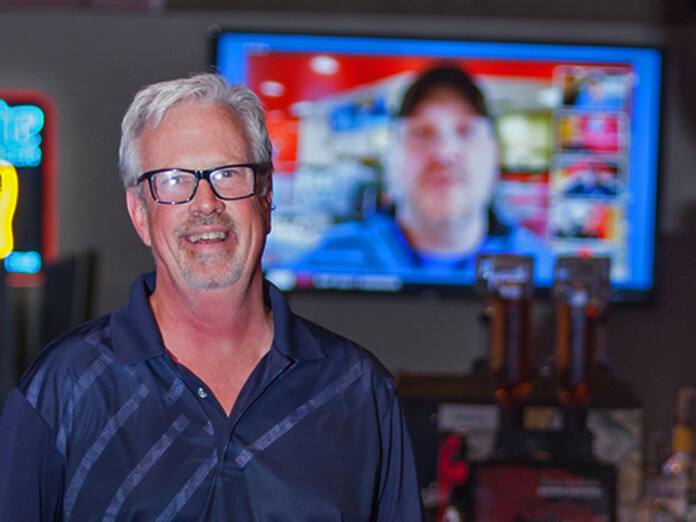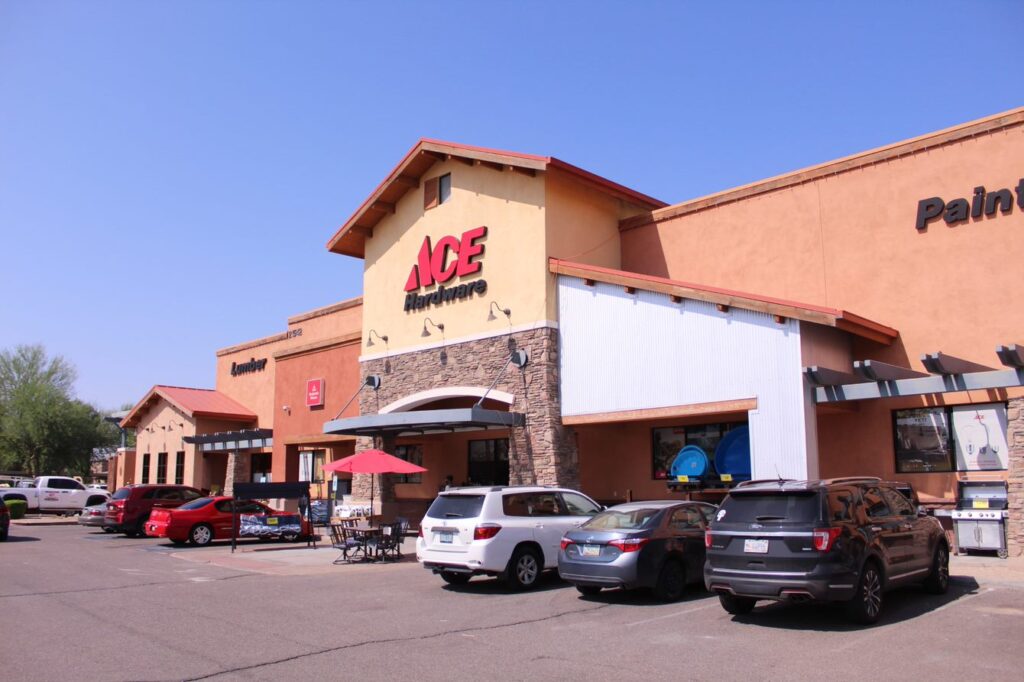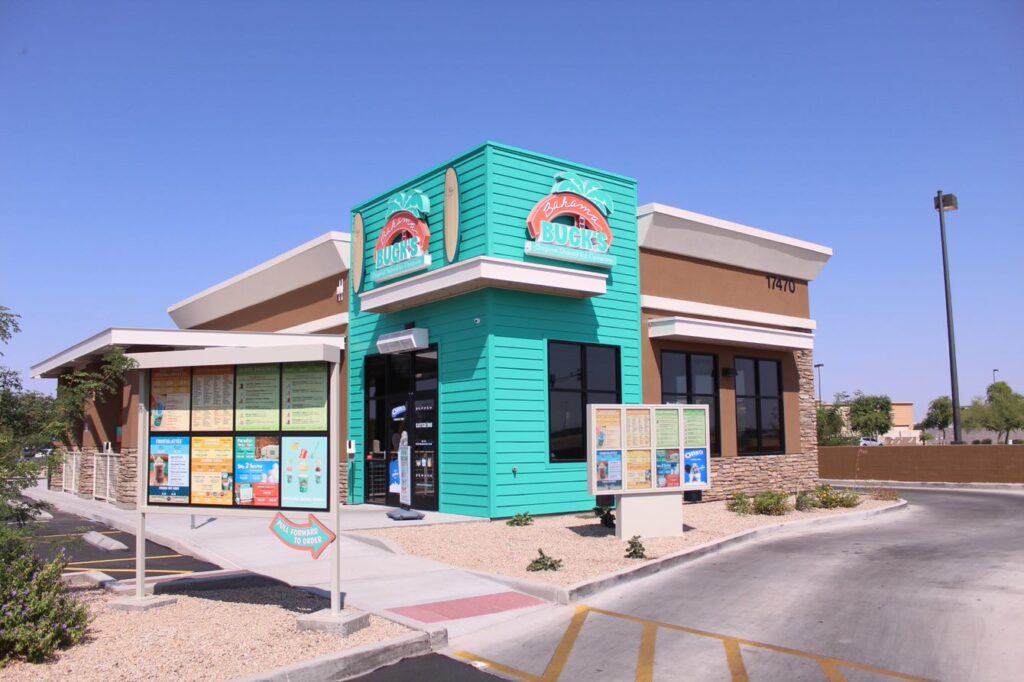
The August opening of Sprouts Farmers Market in Maricopa drew a day-long throng of thousands.
It was, perhaps, a standard turnout as Sprouts openings go, according to a company official, with a couple hundred people turning out early in the morning for a ribbon-cutting and to get a first look at the long-awaited, 23,000-square-foot, upscale supermarket that anchors the new Sonoran Creek Marketplace shopping plaza.
But another, smaller segment of the crowd caught the attention of Nathan Steele, who was attending the festivities in his role as the city’s director of economic development.
There among the city’s elected leaders, invited guests and 150-or-so excited shoppers who queued up to be among the first in the store were several presidents and executives of commercial real estate companies representing nationally known franchises.
“They saw the crowd and they saw the line,” Steele said. “They were excited to bring their clients to Maricopa.”
“That’s the kind of thing I’m looking for,” he added. “Something like that indicates that interest is growing in Maricopa.”
PLUGGING THE LEAK
It’s already pretty clear — businesses are successful in Maricopa, whether a small local business or part of a larger franchise.
“We have this small-town atmosphere that is attractive for residents to live here but at the same time we have a market of about 100,000 people,” said Steele.
He tallies the 60,000 residents who live within city limits, plus those in unincorporated areas and within the two Native American reservation communities.
“If you include all of those together, we have a pretty significant market that has over the last, I’d say, probably two or three years, gotten the attention of some of the big-name franchises, chains and retailers,” he said.
Several factors come into play, including a well-educated population (65% have been to college) and relatively high income (mean household income of $87,000).
“When you put all of that together, along with it being young families, retailers see that we need places where people eat, we need places where people can shop because there is expendable income here within Maricopa,” Steele explained.
Warren Forsythe, president and CFO of StarCorp, a Carl’s Jr. franchisee that plans a return to the city with a new restaurant, pointed to the rate of population growth as a major factor.
“Maricopa is the fourth fastest growing community in Arizona by percentage growth — at a rate of 33.68% — but we pinpointed this area long before the U.S. Census put out their numbers, because of our simple belief in community and where we want to be — and stay — as we look at our business footprint over the next five, 10 and 25 years.

That number stands out to Steele. In fact, he has made reduction of that number — as much as possible — one of his priorities.
“I share that number with restaurateurs, and they get excited because they see that $35 million a year (of that leakage) is just on food and drink,” he said.
The businessman who will open a Cold Beers & Cheeseburgers sports bar in the spring next to Sprouts saw that number early on, according to Steele. “He said, ‘Absolutely, I’ll bring a restaurant to town.’”
Steele is using those leakage figures to cultivate interest from other retailers, too.
Decreasing retail leakage means more businesses are opening and Maricopans are spending more of their money in town, instead of in Casa Grande or Chandler. The creates a kind of domino effect, with new businesses spurring more new businesses to open in town. The city’s small businesses profit as well as consumer behavior changes.
“There are several recognizable names looking at Sprouts saying, ‘Let’s see how successful they are.’ Once they can see Sprouts’ success, they will also want to come to be part of it.”
Already, Steele has plenty of other success stories to share with prospective businesses.
BUSY BAHAMA BUCK’S
For starters, consider the case of the city’s first Bahama Buck’s franchise, which was opened in November by Collins and Adelaide Appiah.
For weeks, cars lined up around the shaved ice emporium on Porter Road at The Wells. In January, two full months after the opening, their store led all 100-plus locations in the chain in sales.
“We’re happy where we are in Maricopa for sure,” said Collins, who noted they also considered locating their shop in Tempe.
The Appiahs, like many of the other business owners interviewed for this story, declined to discuss specific sales figures, but they made it clear they are pleased with the way business is going one month shy of their first anniversary.
“The community has been very, very fantastic,” Adelaide said. “They’ve been very supportive of us since we started, and we genuinely see the joy in their faces anytime they come by the store.”
“We are so grateful to be part of the community,” she added.

“With the type of success that we’ve had, we intend to grow with the community,” Collins said. “If the opportunity comes for us to put up a second store, we’ll jump at it.”
READY FOR BATTLE
Other success stories include Fry’s Marketplace, which is one of the division’s top sales performers for its Kroger parent company, according to a spokeswoman.
Ace Hardware in Maricopa has the strongest sales volume of the five stores run by owner David Karsten and is one of the larger stores in the region, he said.
One of the biggest reasons for that success, as the store celebrates its 15th year in business, is the sense of community, according to Karsten.
“It was my impression before we took over that store, and it certainly is reinforced today, that it’s a strong community that thrives on supporting each other,” he said.
That sense of community comes from within the store as well, since just about all his team members live in Maricopa, Karsten said.
“The team really thrives on serving their neighbors,” he said.
Another reason, Karsten acknowledged, is the absence of a Home Depot or Lowe’s in town, a business advantage that Ace will eventually lose. But don’t expect the business model to change.
“We grew up in the hardware business competing with the big boxes,” Karsten said. “For as long as I’ve been in business they’ve been around and in the market. They’re real, they are a force, no doubt about it. So, when we go into a market like Maricopa, where those competitors aren’t there today, but more than likely will be, we go in with the attitude that they are there today and we’re battling them today and we’re going to do business as if we were competing directly with them in that market.”
Ace’s advantage is faces on the floor, he said.
“Our key differentiators are people,” he said, noting the level of customer service is higher, both in numbers — associates to customers — and the quality of the team.
“That model is labor-intensive and certainly it’s an expensive model as compared to a big box, but that’s what we drive toward, and we feel confident that the big guys simply can’t do it because of their size. That’s really our weapon — customer experience.”
BRIGHT FUTURE
Perhaps no other business in town has earned its success more than Native Grill & Wings, which launched 16 years ago as one of the first sit-down restaurants in a city of about 6,000.
“In 2005, it was exciting, but you didn’t really know what you’re going to get in Maricopa because it was so new,” said owner Pat Kieny.
The initial response was good, but the restaurant has had to ride out a number of crises, including the Recession of 2008, which devastated the local economy for years.
“Everybody walked away from their houses and businesses were closing and everybody was afraid to spend money,” he recalled. “That was very, very difficult but now, overall, the economy in Maricopa and the whole country, in general, has been good for the last 10 years or so.”
The pandemic, of course, forced Kieny to adapt to public health mandates for many months, but the restaurant recorded some of its best sales numbers ever as people spent their money in town. It could be a harbinger of the future.
Kieny, for one, is bullish on that future — both for the city and his restaurant.
“More people are moving in, they have decent jobs, they have money to spend, and they want to work on their houses and go out to eat and do entertaining things,” Kieny said.
Like Steele, the restaurateur sees all the economic activity underway and in the pipeline giving city residents even more reason to stay and spend in Maricopa.
“I have a very positive attitude about (Native’s) future,” Kieny continued. “I think it’s going to do well. What will happen as new places that are more direct competitors open, of course, people are going to try them. You always end up with a little dip for a while but then you know things kind of even back out, especially since more and more people are coming into town.
“I would say over the next 10 years things for me look very positive and for everybody.”
This story was previously published in the October edition of InMaricopa Magazine.





![Maricopa’s ‘TikTok Rizz Party,’ explained One of several flyers for a "TikTok rizz party" is taped to a door in the Maricopa Business Center along Honeycutt Road on April 23, 2024. [Monica D. Spencer]](https://www.inmaricopa.com/wp-content/uploads/2024/04/spencer-042324-tiktok-rizz-party-flyer-web-218x150.jpg)






![Alleged car thief released without charges Phoenix police stop a stolen vehicle on April 20, 2024. [Facebook]](https://www.inmaricopa.com/wp-content/uploads/2024/04/IMG_5040-218x150.jpg)




